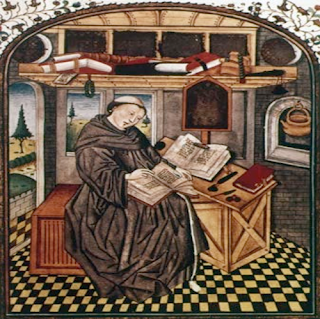CHRIST IN WINTER: Reflections on Faith & Life for the Years of Winter—HOW WILL THEY HEAR WITHOUT A PREACHER? [8-31-23]
My theological alma mater recently stated this mission in the publication it sends to me to ask for money: “Forming courageous leaders in the way of Jesus to cultivate communities of justice, compassion, and hope.”
I like that. I hope that one of the communities for which they are forming those courageous leaders is the church congregation.
The church congregation used to be the only community for which the seminary formed courageous leaders. Now it is not even the major community for which the seminary provides leaders. Only about 40% of current seminary students are intending a career as a local church pastor.
That includes students from the Wesley Foundation where I spent many years as campus minister. I and my successors sent about 50 of our students to seminary. Almost all of them became congregation pastors. That was then…
That WF sent me a request for money recently, and to emphasize how important their ministry is, told about all their recent grads who are seminary students now. About six, I think, maybe seven. [I can’t check the mailing because I can’t find it. There are gremlins in our house that hide anything I try to find.] Most are attending my own theological alma mater. Not a single one is looking toward a career as a congregation pastor. They want to be hospital chaplains, campus ministers, military chaplains, therapists, social workers… In other words, “courageous leaders in the way of Jesus to cultivate communities of justice, compassion, and hope.” Just not in the community of a church congregation.
When I entered my seminary, almost every student was a 22-year-old white male. In this year’s entering class, I doubt that there was even one 22-year-old white male. Students today are from every social community--every color, every gender identification, every nation, every denomination. Most are second or third career. I applaud that. Such diversity is good.
Despite their diverse differences, they have one thing in common: each comes out of a congregation. They have one other thing in common: none wants to be in a congregation, to lead a congregation. They want to be “courageous leaders in the way of Jesus to cultivate communities of compassion, justice, and hope.” Just not in the sort of compassionate, just, and hopeful congregation community that taught them about the way of Jesus.
I don’t blame them. I was a leader in that sort of community for a long time, and I know how many the rigors and how few the rewards. I think being a pastor now is even harder than when I did it.
My theological alma mater has an endowed scholarship that is named for Helen and me. Each year the recipient of that scholarship writes to tell us of their plans. A different recipient each year. None ever tells this old pastor-theologian that they want to be like him.
The church of Christ is not just the local congregation. But I think we still need congregations. And I think those congregations need pastors. And I think those pastors are better if they are educated. I just worry about how they will hear the call, and where they are going to get an education.
How will they hear without a preacher? [Romans 10:14.]
John Robert McFarland











